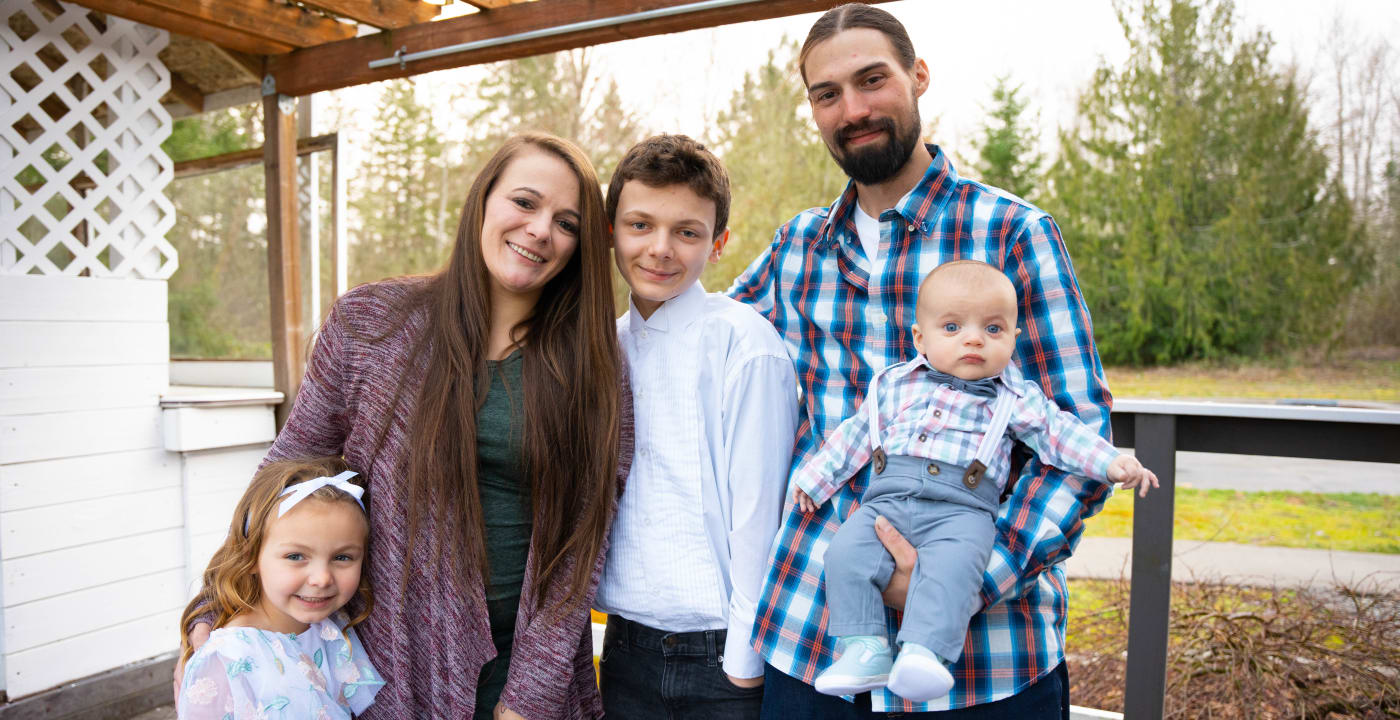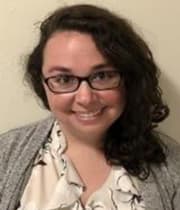Family reunited thanks to donor-supported programs that lead to recovery

The day Corinne Bankosh met her son Jaxon was the day she swore off opioids forever.
Before she gave birth, Bankosh lived in a tent with Jaxon’s father, David Hatch. She became gravely ill about halfway through her pregnancy but was wary of going to the hospital, believing she wasn’t that sick and anxious about how she’d be treated because of her substance use disorder (SUD).
Around the same time, peer case manager Trisha Munson, substance use disorder professional (SUDP) Glen Kelley, registered nurse practitioner Elliott “Benson” Bagwell and intensive case manager Brandon Rabisa came into Bankosh and Hatch’s lives, determined to help however they could.
Munson, Kelley, Bagwell and Rabisa are part of Greater Lakes Mental Healthcare’s Homeless Outreach Stabilization and Transition (HOST) team, along with a mental health professional and recovery coach. The program is administered by Recovery Support Services — a section of the Division of Behavioral Health and Recovery within the Washington State Healthcare Authority — to provide medical and mental health services, in-field SUD assessments and intensive case management to individuals experiencing houselessness who have serious behavioral health challenges.
“The overarching goal is to bring everything a person needs together to change the trajectory of where they’re going,” Munson says. “So much of the time it involves donors and their generosity.”
Specifically, MultiCare Behavioral Health Foundation supporters help bridge the gap between what’s covered by the program contract and what it takes to care for the whole person.
For Bankosh, this meant getting to MultiCare Good Samaritan Hospital and being treated for a life-threatening kidney infection. For Hatch, it meant having two teeth pulled free of charge.
“The way I was raised, government or social workers had a bad connotation,” Hatch says, sharing his initial hesitancy about HOST. But “Trish and Glen and Elliott took the time to come out and check specifically on us and make sure we were all right. You could tell they wanted to be there to help, and they’re like family to us now.”
Recovery at the START inpatient unit
HOST staff facilitated a detoxification inpatient stay for Hatch and connected Bankosh with the donor-supported Substance Treatment and Recovery Training (START) inpatient unit at Good Samaritan Hospital.
In July 2022, START opened its doors to pregnant patients with SUD. Bankosh arrived to be admitted on Nov. 8 but ended up delivering Jaxon immediately. Two days after her son’s birth and her first sober day, she entered the program.
“It’s gonna take a long time for me to forgive myself for having a kid that was addicted to drugs,” Bankosh says. “That was everything I was against and everything I didn’t want to happen.
“[David and I] both had the mindset: ‘I have to do this (rehabilitation) for my kids,’” she continues. “And it was hard, but I was there for the full stint.”
Over the next 28 days, Bankosh was one of the first START participants to transition to Suboxone — a prescription medicine used to treat opioid addiction — postpartum. She met doctors, nurses and counselors who helped her stay the course.
As she describes it, these included funny, down-to-earth SUDP Eric Siljeg; nurse Tanya Phelps, who still sends texts of encouragement; impactful Chelsea Crabtree, MD; the sweet and caring founder of START, Abi Plawman, MD; and many more.
“From our very first meeting, Bankosh was clear about her needs and what support would help her in her journey,” Dr. Plawman shares. “Her ability to communicate with her team and insist upon collaboration allowed multiple care providers to work together to help set up a functional support plan. Her motivation to engage despite significant barriers and her profound love for her baby were apparent throughout her time with us.”
Because of MultiCare Good Samaritan Foundation’s community of supporters, patients like Bankosh can start their recovery journeys in a safe space with an array of on-unit activities and wraparound resources. Dr. Plawman says the unit wouldn’t be able to provide this care without donor generosity.
A family reunited
According to Bankosh and Hatch, their life has changed in every way since that summer day when HOST visited their encampment.
“What we have now versus what we had before is a complete difference,” Hatch explains. “We were homeless on the street with a few bags, and now we’re inside, warm every night.”
HOST also assisted with the latter, drawing on community partnerships to get the family into a temporary substance-free housing situation.
In February 2023, the family finally brought their “little man” home after passing every observation with flying colors and completing all necessary steps and paperwork. Baby Jaxon has settled in beautifully and is most content in his parents’ arms.
Both Bankosh and Hatch are grateful to the donors who championed them on their months-long journeys toward recovery, healing and building a brighter future for themselves and their children.
“You’ve made a big impact, truly,” Bankosh shares. “The only thing that really can show my gratitude — besides saying thank you — is to stay on the right track.”
Hatch credits Foundation donors and the people he’s met along the way with reuniting his family and saving his life.
“If it wasn’t for these donors and these programs and our family, we probably would’ve lost Jaxon to the foster care system,” he reflects. “We’d probably still be out on the streets. Without them, who knows if we’d even be alive right now. You’ve changed our lives for the better. Thank you.”




